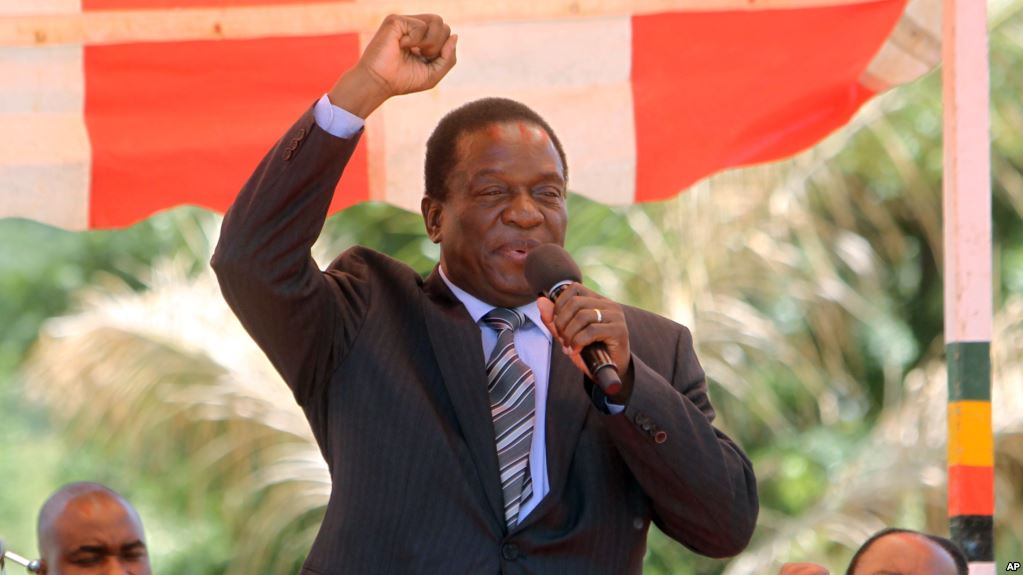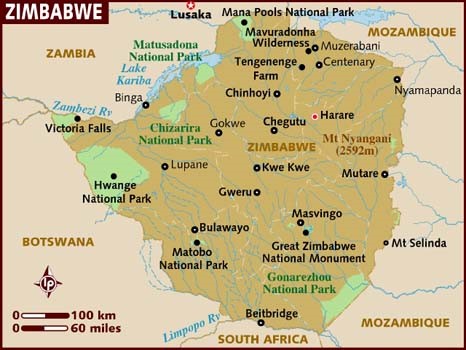A new path for Zimbabwe?
December 25, 2017 | Expert Insights

Zimbabwe’s new President Emmerson Mnangagwa has vowed to introduce policies that will effectively boost the nation’s economy and improve its standing in the international community.
Background
For multiple decades now Zimbabwe has struggled to feed its own people due to severe droughts and the effects of a land reform programme which saw the seizure of white-owned farms redistributed to landless black Zimbabweans which led to sharp falls in production.
In November 2017, the nation has been gripped in political crisis. Former Vice President of Zimbabwe, Emmerson Mnangagwa, alleged that President Robert Mugabe, had threatened his life. Mnangagwa, who was sacked by the President in November 2017, then fled to South Africa.
Shortly after the Vice President left the nation, the country’s army commander Constantino Chiwenga said on that the military would act if purges against former war liberation fighters did not cease. In addition, soldiers took over the headquarters of the state broadcaster ZBC and blocked access to government offices. However, the army insisted that this wasn’t a coup to replace Mugabe from power.
After being in power for 37 years, Robert Mugabe resigned as the President of Zimbabwe with immediate effect in November 2017. For nearly eight days, he had resisted growing calls for resignation. Even party leaders had begun calling on him to step down to deescalate the situation.

Analysis
Former Vice President Emmerson Mnangagwa has now been sworn in as the President. He had been a longtime ally of the former President before falling out of his favor. He has vowed to introduce policies that will resuscitate Zimbabwe’s economy.
"My government is committed to open Zimbabwe out to investment by building a free and transparent economy which benefits Zimbabweans and is welcoming to outsiders," he told a joint sitting of the country’s two houses of parliament.
To that end, the government will soon unveil "a robust engagement and re-engagement programme with the international community in our continued bid to rejoin the community of nations", he said. He also noted that he will do everything within his power to ensure there are free and fair elections conducted in 2018 so the voices of the people are heard. He said, “Economic developments require a clean government. On individual cases of corruption, every case must be investigated and punished in accordance with the dictates of our laws. There should be no sacred cows."
Assessment
Our assessment is that there are growing concerns that Mnangagwa, who was long seen as Mugabe’s loyal successor, will not change the way the governance is conducted in the country. Only time will tell if the country’s many problems, which include corruption at the highest levels, will be curbed. We feel that Mnangagwa will have to come terms with the injuries inflicted on the white farming community who had undoubtedly made Zimbabwe a very prosperous agricultural entity in Africa. The plight of Zimbabwe is closely linked to the populist and self-serving policies of Mugabe. Zimbabwe was the beneficiary of substantial aid from Briton, which helped Mugabe guarantee good education and superb health care for its citizens. We believe that the current situation in Zimbabwe is first due to his partisanship towards the Shona tribe against all other fellow black Zimbabweans and second to due to the brutal killing of some prominent White farmers by the so-called war veterans.
We also believe that Zimbabwe is in a perilous state as far as the economy is concerned. Inflation has gone through the roof and international commodity prices have dropped.
For citizens of the nation, economic recovery is the main priority and if the new President fails to deliver on that, then the tide will turn.








Comments